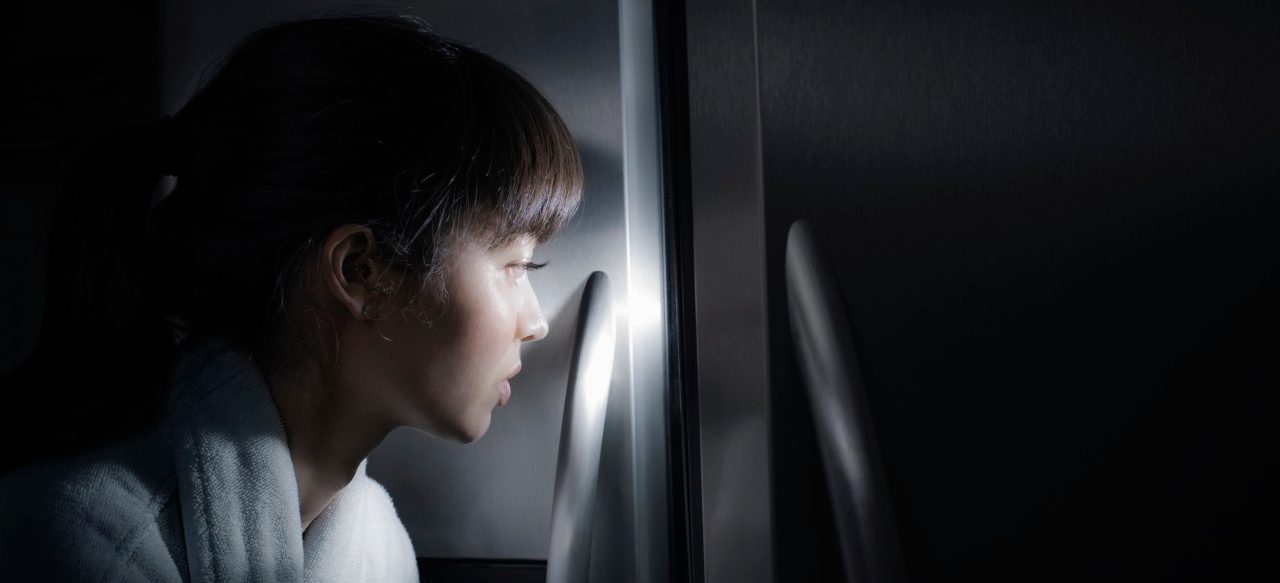Eating Late Is Really Bad for You

Humans are built to fast 12 hours a day. But that's not a typical American pattern. Late meals and snacks are linked to weight gain, acid reflux, and breast cancer.
You may have read that light coming into your eyes sets your body’s clock, or circadian rhythm. Fewer people know that eating shifts the clocks in tissues in your liver, muscles, and fat.
It’s a bad idea to skip breakfast, eat lunch or dinner late, eat a big bedtime snack, or eat during the middle of the night. Human beings evolved to eat only during daylight, which lasted 12 hours much of the year in the African savanna.
Sticking as nearly as possible to that plan may help you stay healthier as well as thinner.
YOU MIGHT ALSO LIKE: Your Day by Your Body Clock
Weight gain
In a study with 776 participants, people who skipped breakfast were 80 percent more likely to have obesity, while people who ate lunch after 12:30 p.m. or dinner after 9 p.m. were 60 percent more likely to become overweight. That was true for both men and women at different ages, regardless of other factors that affect weight, including diet and exercise.
Another study of more than 3,600 Japanese nurses concluded that skipping breakfast increased their weight no matter how many calories they ate.
Getting your calories early in the day, including a high-energy breakfast, is one remedy to manage blood sugar after meals in people with type 2 diabetes, again supporting the idea that timing affects how the human body manages energy.
Eating at odd hours seems to contribute to compulsive eating. When you eat late at night, you tend to eat more overall.
Perhaps driven by hormone surges, people tend to crave sweeter, starchier, saltier food at night, research suggests. In one study, night eaters ate about 300 more calories each day. Three years later, people who didn’t eat near bedtime had gained only four pounds, while night-eaters had put on 14.
An important exception may be the elderly, who may need late-night snacks if they don’t eat enough during three meals.
Acid reflux
As many as 20 percent of Americans may suffer from gastroesophageal reflux disease (GERD). GERD occurs when stomach acid flows back into your throat, triggering:
Common anti-reflux medications don’t seem to protect you against cancer, although evidence suggests they don’t increase your risk, as some suspected.
Eating late in the day seems to aggravate acid reflux and negatively affect your blood sugar, blood pressure, and weight.
Give your stomach at least three hours to digest before lying down to sleep, advises Jonathan Aviv, MD, an ear, nose, and, throat acid-reflux specialist. If you need to eat close to bedtime, have small healthy snacks so you can sleep better.
Breast cancer
Eating breakfast late may increase your risk of breast cancer — by about 17 percent for every hour you delay, according to a study of nearly 1,200 women with breast cancer in Spain compared to more than 1,300 women who didn’t develop breast cancer.
If you eat late at night, other research suggests you may increase your chance of breast cancer recurrence.
While researchers work out the details of how our body clocks affect appetite, digestion, and the downstream effects of food, one point seems clear: Keeping regular and early mealtimes is your best bet.
Updated:
December 18, 2023
Reviewed By:
Janet O’Dell, RN